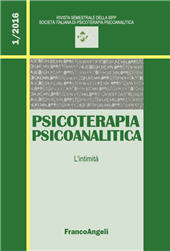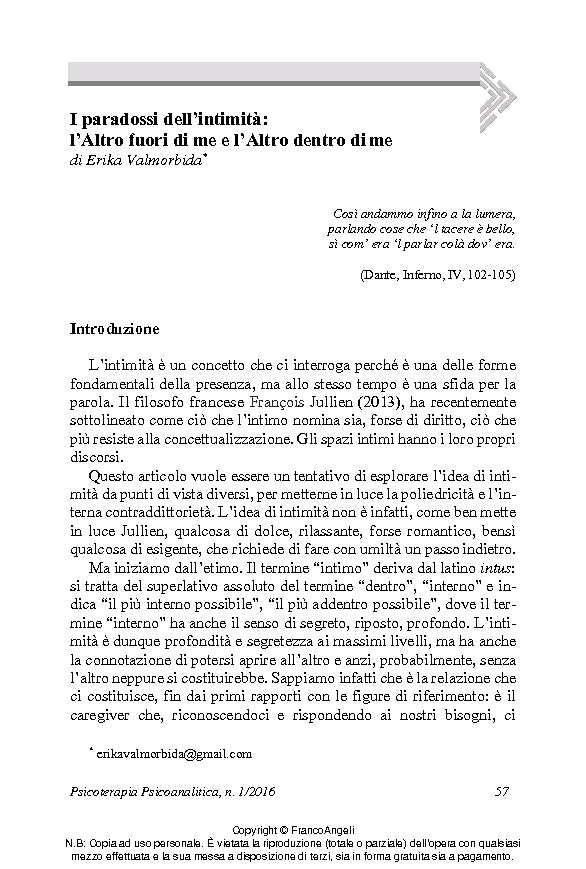I paradossi dell'intimità : l'Altro fuori di me e l'Altro dentro di me.
57-68 p.
L'intimità è un concetto paradossale e difficilmente concettualizzabile, può riferirsi a un rapporto con l'Altro fuori di noi, ma anche con l'Altro dentro di noi. Dal dáimōn socratico alla dianoia platonica, passando per il verbum interioris di Agostino, la "voce interiore" luterana, il "penso, dunque sono" di Cartesio e fino al romanticismo e all'idealismo, per approdare al concetto individualistico novecentesco di intimità, questa espressione dell'umano ha incessantemente cambiato volto. Nella società contemporanea assistiamo a una esteriorizzazione dell'intimo, che non trova più il suo necessario nascondimento.
Intimacy is a paradoxical concept as well as difficult to conceptualize. It can refer to a relationship with the Other outside us, but also with the Other inside us. From the Socratic dáimōn, to the Platonic dianoia, through the Verbum interioris of Augustine, the Lutheran "inner voice", and the "I think, therefore I am" of Descartes to the Romanticism and Idealism, and moving to the twentieth-century's individualistic concept of intimacy, this expression of the human being has constantly changed. In contemporary society we can see an externalization of the intimacy, which no longer has its necessary concealment.
Fa parte di
Psicoterapia psicoanalitica : 1, 2016-
Articoli dello stesso fascicolo (disponibili singolarmente)
-
Informazioni
Codice DOI: 10.3280/PSP2016-001005
ISSN: 2531-6753
PAROLE CHIAVE
- Intimità, identità, esteriorizzazione, Altro
- Intimacy, identity, externalization, Other



